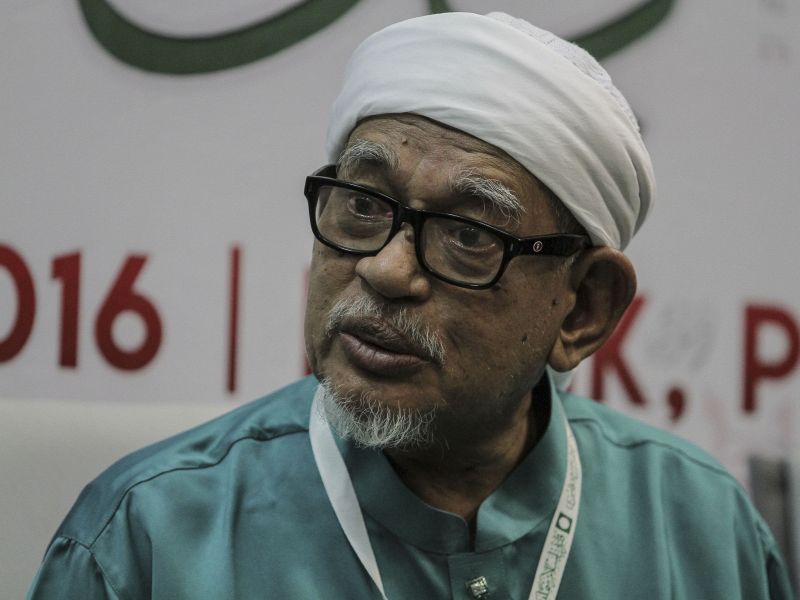KUALA LUMPUR, Dec 20 — An international group of Sunni scholars has condemned Datuk Seri Abdul Hadi Awang for attending a conference in Iran, a key backer of Syrian president Bashar al-Assad’s regime amid violence in the strife-torn country.
The International Union of Muslim Scholars said in a statement that it was baffled by Hadi — who is the deputy president of the body — calling the move insensitive especially at a time when the Muslim world is grief-stricken and angered by Assad’s regime.
“The Union is perplexed by the timing of the visit, at a time when Iran is violently culling our brethren, particularly in Halab and Syria. Apart from the country’s greed in its attempt to control Sunni territories in Yemen and Iran,” the group and its president, Egyptian theologian Dr Yusuf al-Qaradawi said.
“The Union also condemns the visit. We consider the visit as an informal one and that it does not represent the Union. The visit was done at the individual’s own accord.
“The Union is also waiting for an explanation from the learned [Hadi] about the visit that we strongly disagree upon,” it added, referring to the PAS president.
The statement was written in Arabic and had been translated by Perlis Mufti Datuk Dr Asri Zainul Abidin on his Facebook page.
Under fire for the Iran visit, Hadi’s political secretary Ahmad Samsuri Mokhtar told Malay paper Sinar Harian that his attendance at the conference was made following an invitation by Dr Abdurrahman Bayraan, said to be an Iranian representative of the Union.
Samsuri also claimed that Abdurrahman had been appointed by Yusuf himself.
However, the Union and Yusuf had in the same statement vehemently denied that the visit was sanctioned by it.
Mufti Asri also had commented on the faux pas, saying he was “glad” that the Union and Yusuf had cleared the air over the matter by strongly protesting Hadi’s visit.
“I am glad that Yusuf al-Qaradawi and his secretary Dr Ali al-Qurah Daghi had not only denied sanctioning the visit but condemned it,” Asri said.
Thousands of civilians and rebels left Aleppo starting last week under an evacuation deal that will allow Syria’s regime to take full control of the city after years of fighting.
More than 310,000 people have been killed since the Syrian conflict began in 2011 with anti-government protests, and over half the population has been displaced, with millions becoming refugees.
The Syrian conflict has been coloured by the Sunni-Shiah sectarian divide, with the ruling government coming from the minority Shiah sect Alawite backed by Shiah militants Hezbollah and Shiah-majority Iran, while the opposition includes Sunni jihadists and support from Sunni-majority Saudi Arabia and Qatar.



















